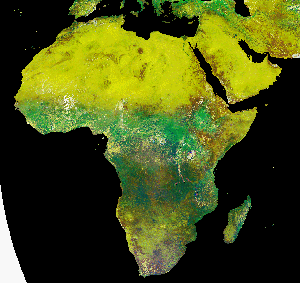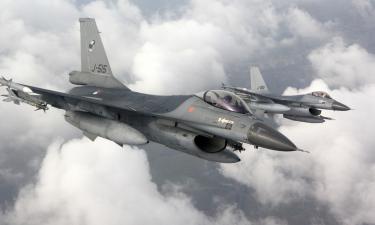Africa wakes up
Africa starts to appear in the news for the right reasons
For many decades, Africa, like Russia today, only appeared in western news organs if there was an outbreak or war or disease or a plague of locusts, painting a picture of a horrific place in which to take extreme caution in the event of a visit - or providing a good reason not to visit at all.
After years of exploitation, in which the traffic of raw materials was a one-way street, after colonial powers set in motion the mechanisms for a wholesale ransacking of the continent's wealth, Africa has started to appear on the world stage with confidence, with commitment and with a collective identity which forces the outside world to take notice and rethink its strategy.
The fact that the British Prime Minister Tony Blair has made Africa a central part of his strategy in 2005, the year he hosts the G8 summit, is a good sign, as is the setting up of the Commission for Africa, whose report was issued in march.
This report draws up guidelines for addressing Africa's ills, calling on the African leaders to adopt policies of good governance, attacking corruption and respecting the constitutions of their countries and setting out a list of policies for the more developed nations, among these being a total pardon of Africa's debt and curtailing the practice of providing subsidies to western producers while imposing tariffs on imports.
The African Union and the NEPAD, New Partnership for Africa's Development, provide a framework and an instrument to build Africa as a Continent, putting into practice cohesive and forward-looking policies of sustainable development.
Under NEPAD, development comes through partnerships, not a top-down strategy imposed from Europe or North America but a marriage of common interests.
The African Union has been instrumental in solving crises - African problems solved by Africans. The attempt by Faure Gnassingbe to succeed his father by by-passing the constitution was quickly and decisively handled by ECOWAS and the A.U., the Nigerian President and currently African Union President Olusegun Obasanjo calling the self-styled Togolese head of state to Abuja, where he was instructed to obey the constitution of his country and hold elections.
In Somalia, the Kenyan government and the A.U. have brokered a deal where at least a semblance of government is returning to the chaos wrought by war-lords, who have agreed to a truce. In Darfur, while the deaths continue, at least these days it is more through hunger and disease than by wholesale slaughter. The African Union's peace-keeping force has managed to reduce the fighting to skirmishes, although there remains a lot to do.
President Obasanjo is stamping out corruption in Nigeria, where he has just ordered the cancellation of hundreds of government properties at reduced prices (it is claimed that several government ministers and the close family of his wife were to be beneficiaries).
Far from being the poor relative of the international community which has to be content with hand-outs and a pat on the head, Africa stands proud of its traditions and culture, assuming the bad points of its history along with the good and meets the international community eye-to-eye, with a smile in its eyes and heart.
The response which Tony Blair receives from the other G8 members in Scotland will be a telling display as to the level of good will and the desire for commitment in the international community as regards Africa and a clear sign as to whether it returns the smile with a smile, or a sneer.
Subscribe to Pravda.Ru Telegram channel, Facebook, RSS!





